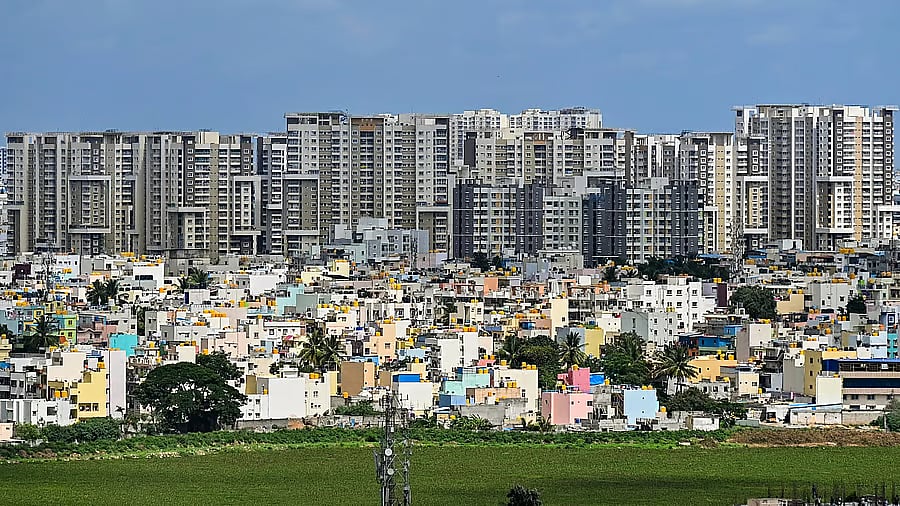
As many as 7.5 lakh ‘B’ khatas have been issued for tax collection in Bengaluru.
Credit: DH File Photo
The Karnataka government’s decision to allow ‘B’ khata properties in Bengaluru to be converted into ‘A’ khata by paying 5% of the property’s guidance value is a welcome and long-overdue move. It promises to bring long-denied legitimacy to lakhs of property owners, streamline civic records, and boost municipal revenues. For a city where nearly 7.5 lakh properties remain in limbo, this initiative could finally bridge the divide between the regular and the irregular. However, the stumbling block lies in the high cost of conversion. The 5% fee may prove unaffordable for many middle-class site owners. For instance, a 30x40 site in an area where the guidance value is Rs 7,000 per sq ft would cost Rs 4.2 lakh to convert. This is a steep price for families who bought such sites with their life’s savings. It must also be remembered that these owners have already paid stamp duty at the time of registration, based on the then prevailing guidance value.
The problem, however, is not the citizens' making. Successive governments must share the blame for allowing registration of ‘B’ khata sites and collecting property taxes from them, thereby giving these sites a veneer of legality. Having legitimised the practice for years, the government cannot now turn around and impose a punitive cost for correction. It should never have allowed such registrations in the first place. The current mess is the result of decades of administrative apathy and political expediency, where votes and revenue took precedence over planned development and civic discipline. Moreover, the scope of the scheme is limited. It applies only to vacant sites and plots with single-unit buildings, leaving out thousands of apartment owners who also hold ‘B’ khatas. Likewise, there are scores of legally registered layouts on Bengaluru’s outskirts coming under panchayats where buyers have paid stamp duty and taxes in good faith. These, too, deserve to be brought under the scheme.
The 100-day application window, starting November 1, also seems too short, given the scale of the exercise and the financial burden involved. A staggered or phased approach would have been more practical. If the charges are too high, the scheme risks discouraging participation and defeating its own purpose. Though the process can be done online, citizens are often compelled to complete it physically, often paying hefty bribes to get their work done. The move to convert ‘B’ khata to ‘A’ khata is indeed a step in the right direction. But for it to succeed, the government must ensure that affordability and fairness, not merely fiscal gain, guide its implementation.
